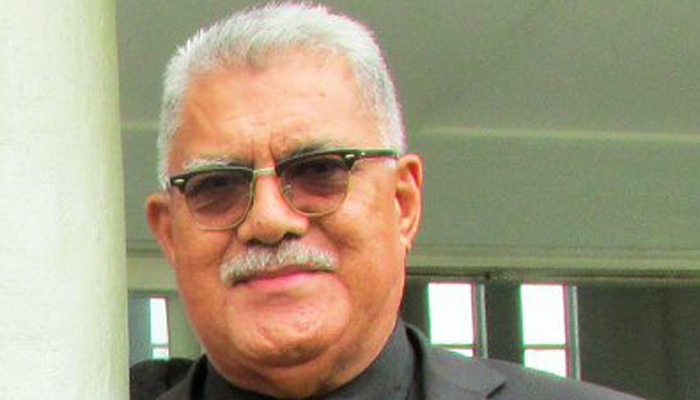Nuku’alofa, Tonga—Fears are mounting that His Majesty King Tupou VI may dissolve Tonga’s Parliament if the government fails to secure enough support to pass its 2025/2026 national budget, plunging the kingdom into a constitutional crisis.

Legal expert Lōpeti Senituli said that while the constitution does not explicitly mandate dissolution if the budget fails to pass, Tonga would nevertheless face this outcome should the new budget fail to secure majority support, a scenario he attributes to established “legal convention.”
Under Tonga’s constitution, lawmakers must debate and approve the new budget before July 1, the start of the fiscal year. However, with the end of June fast approaching, Prime Minister Eke faces the potential loss of noble MPs support and may struggle to secure the majority needed to pass the budget.
The current concerns stem from the high likelihood of sudden shifts in political alliances, a pattern the current political system encourages.
Initially, the nobility MPs backed PM ‘Eke’s rise to power in December 2024, which saw the ousting of former PM Hu’akavameiliku.
However, after the Cabinet lineup was announced without any representatives of nobility, their support for the government proved significantly inconsistent. This development has empowered ousted Prime Minister Hu’akavameiliku’s growing opposition to the Eke government, particularly targeting Police Minister Piukala and Deputy PM Fusimālohi.
Weak Party System Fuels Instability
Though three informal factions exist, Tonga’s Parliament operates without an official party system. These include the nine nobility MPs and the 17 elected MPs, who typically split between the pro-democracy PTOA Party and independents.
The absence of binding party laws makes it easy for MPs to switch allegiances, often for personal or retaliatory motives.
After Eke was elected Prime Minister, the Parliament said that 16 MPs voted for him while only eight voted for his rival MP Dr Viliami Latu.
Analysts said at the time that about seven of the Nobility MPs may have taken sides with Eke and voted for him in the secret ballot.
In the weeks before the nominations of the new Cabinet for the king to appoint, rumours said several nobility were expected in the Cabinet as part of the deal to support Eke. However, when the government announced the Cabinet lineup appointed by the king, there was no nobility MPs appointed.
PM Eke did not respond to Kaniva News’ request to clarify the situation at the time, but it was alleged that the king did not want his Nobility involved in the Cabinet.
Eke’s Mixed Parliamentary Fortunes
Lawyer Senituli’s concern follows the nobility’s initial support for the former Hu’akavameiliku administration, in which some of them were nominated by Hu’akavameiliku and appointed by the king as Cabinet Ministers. However, the nobility suddenly made a U-turn, defecting from Hu’akavameiliku and switching their support to PM Eke.
Yet this pattern of shifting allegiances resurfaced during Parliament’s first meeting in January to swear in Prime Minister Eke and his Cabinet. The Nobility MPs, who were believed to support Eke’s government, voted against the Police Minister’s motion to conduct his swearing-in in English instead of traditional Tongan.
The opposing nobles included His Serene Highness Pilinisi Kalaniuvalu Fotofili, Lord Nuku, Lord Tu’iha’angana, Lord Fohe, Lord Tu’ivakanō, and Lord Vaea.
However, recent government-sponsored bills have successfully passed with majority support in Parliament. This includes PM Eke’s Public Enterprises Amendment Act (Lao Ngaahi Kautaha Pisinisi Pule’anga), which received unanimous approval from all 25 voting Members of Parliament last month.
Legal Expert Warns of Constitutional Crisis
Senituli said that if the budget fails, the activation of the “legal convention”, which could result in dissolution, would be inevitable.
He described “legal convention” as long-standing traditional rules that, while not codified in law, are generally accepted as binding.
He cited Public Finance Appropriation Act, Section 9(1), which states that no public funds can be spent without an Appropriation Act, and Section 9(2), which voids spending authority at the end of each fiscal year.
This means it would be illegal for the government to use spending authority from the previous budget when allocating the new fiscal year’s funds, according to Senituli.
“If Parliament rejects the budget, the Speaker would advise the King of the deadlock,” Senituli told Kaniva News.
“The only resolution under convention is dissolution and a snap election,” he said in Tongan.







